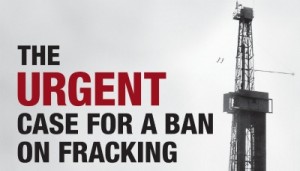Madrid—Last weekend, the second national meeting of Spanish communities against factory farming took place in Minglanilla (Cuenca), involving more than 20 grassroots movements from affected areas all over the country and ten national and international organisations.
The organisation of a national coordination against factory farming started last year to face the dramatic and uncontrolled increase of factory farms in Spain. Its aim is to coordinate movements and organisations opposing this industry.
“The second national meeting ‘Stop Factory Farmin’’ has been a clear success. Many movements from affected regions were represented, with loads of energy to campaign against the hundreds of new factory farm projects that could turn our rural areas into real dung-hills,” said Inma Lozano, spokesperson of the National Alliance Stop Factory Farming. “Factory farming has severe impacts on the environment, public health, rural economies and animal welfare and we need to stop it as soon as possible,” she added.
The National Coordination supports the mobilizations against factory farming that will happen in Talavera de la Reina (Toledo) on Thursday 31st of May, organised by the regional platforms.
—-
___________________________________________________
The Spanish National Coordination against Factory Farming (Coordinadora Estatal Stop Ganadería Industrial) includes local movements from Andalusia (Stop Cerdos Intensivos en el Altiplano de Granada y Almería), Aragon (Plataforma Loporzano SIN Ganadería Intensiva), Castille-La Mancha (ADERA – Asociación para la Economía Responsable de Almendros, Asociación ecologista Serendipia, CLM Stop Macrogranjas, Coordinadora Acuífero 23 sin macrogranjas, El Horcajo Plataforma Cívica- Lucillos, Plataforma Cívica de Gamonal, Plataforma no a la macrogranja en Pozuelo y Argamasón, Plataforma Retamoso Sostenible – Stop Macrogranjas, Pueblos Vivos Cuenca, Pueblos Vivos/Stop Macrogranjas de Cañete, Pueblos Vivos/Stop Macrogranjas de Priego, Stop Macrogranjas Alpera y Ayora, Stop macrogranjas Comarca de Molina de Aragón), Castille and Leon (Plataforma Pueblos unidos de Tábara) and Murcia (Plataforma Ciudadana Salvemos el Arabí y Comarca); and national and international NGO (Friends of the Earth Spain, Compassion in World Farming, Ecologistas en Acción, Food & Water Europe, Greenpeace and Justicia Alimentaria).



